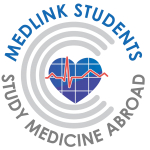
ENQUIRE NOW
Located in: Georgia












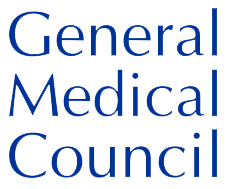





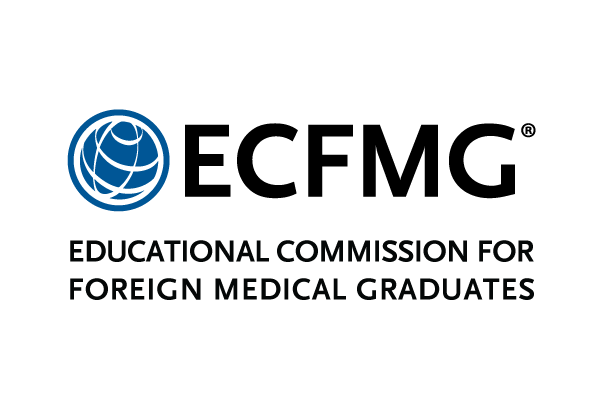



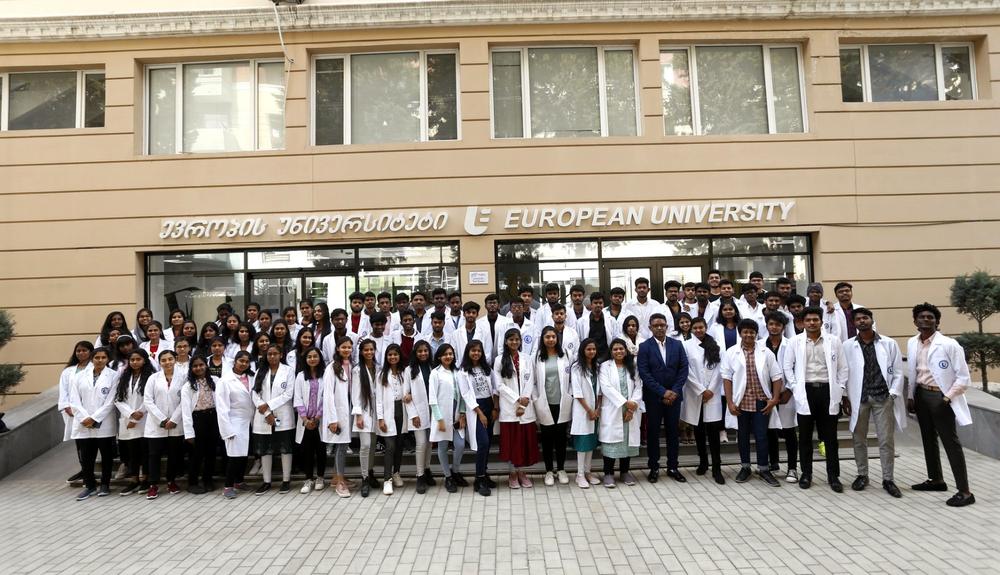



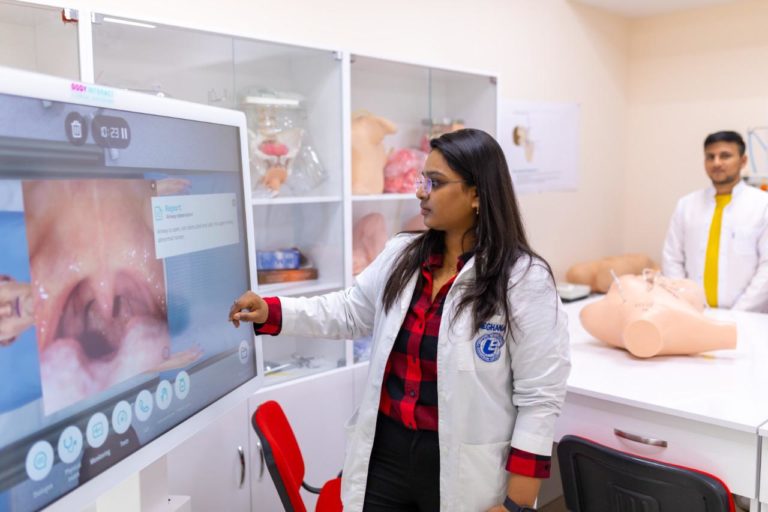

The European University was founded in 2011 and has quickly established itself as one of the top destinations for dentistry in Georgia and Europe. The medical school is located in the country’s capital - Tbilisi, which is one of the safest capitals in the world.
The Faculty of Medicine was created in 2014 after the university made significant investments in modernising its campus, getting high-tech teaching equipment, and hiring well-known experts to teach the next generation of healthcare professionals. The European University is also the first private university in Georgia, with a modern dorm located conveniently near the campus.
A notable feature of the European University is its extensive network of clinical partnerships. The university has established collaborations with approximately 70 clinics throughout Georgia, ensuring that students get ample hands-on experience through clinical training in real-world scenarios.
Additionally, the European University takes pride in owning a private dental clinic, EU Dent, and the Jo Ann University Hospital, a leading medical centre specialising in cardiology and cardiac surgery, which has been around for over 25 years. On average the university hospital takes in between 2,000 and 3,000 patients per year. It is Georgia's pioneering hospital for newborn and paediatric heart surgery and gives students the opportunity to be involved in a clinical environment as early as their 1st semester.
For medicine and dentistry students alike, the European University in Georgia offers an unparalleled multicultural student experience. Students have access to the latest technological advancements and the chance to participate in clinical rotations within a highly specialised teaching environment.
One of the things that makes the European University stand out is its constant investment in growing, developing and modernising its campus and research centre.
For both medicine and dentistry, students start their studies by building a strong theoretical foundation, followed by going through high-tech simulations of real-life situations to gain experience and confidence. It is the first university in Europe to own the latest version of Anatomage, a 3D dissection table that visualises and simulates realistic medical scenarios.
Currently, the university has medicine and dentistry programmes that are taught in English. Like with most universities in Europe, graduates from the medical course at the European University are awarded a Medical Doctor (MD) degree after successful graduation, and the Dentistry programme earns a Doctor of Dental Medicine (DMD) degree. Both of these courses are accredited and internationally recognised.
The European University Tbilisi offers a graduate entry pathway into Dentistry. This programme is designed for graduates that have a Bachelor's Degree in a scientific field as a way to fast-track students who have already acquired the necessary foundational knowledge. Depending on the subject’s they’ve studied, students can start their studies in either the 2nd or 3rd year.
The university school also accepts student transfers, but students need to fulfil specific criteria. If you’re interested in transferring to the European University, we recommend signing up for a free consultation with one of our expert academic advisors, who can guide you through the transfer process.
The European University uses the European Credit Transfer System (ECTS) to ensure a fair and transparent assessment method.
All lectures are live-recorded for review and all presentations will be uploaded. Additionally, the university hosts live seminars where students can ask questions after watching the lecture recordings, while also listending to other students inquiries.
The university address is II Building, 17 Sarajishvili Street, 0189 Tbilisi, Georgia.
The medicine course at the European University offers a comprehensive curriculum designed to completely prepare students for their future careers as doctors. The programme is accredited, internationally recognised and fulfils all of the GMC criteria. This means that upon graduation, you will be able to become a successful doctor in many countries around the world, including the UK, Europe, and beyond.
The European University has a dedicated campus with all the necessary facilities for medical students. It's a single, brand new, modern building housing classrooms, a library, examination halls, dean's offices, a simulation centre for clinical skills practice, a large auditorium for major exams, and comfortable common areas for students.
The European University Tbilisi Georgia is committed to providing high-quality education led by recognised specialists in medicine with extensive clinical and pedagogical experience. The professors at the medical school are dedicated to ensuring that every student gets individualised attention and that no question is left unanswered. They take an active approach to teaching by engaging with students, asking questions, and by being as helpful as possible during lectures. The university also provides support services for any student who feels they may need some extra help.


The Faculty of Medicine has established cooperation agreements with about 70 clinics in Georgia and with medical universities worldwide. This network enables students to engage in clinical practice at various university clinics globally, participate in ongoing research projects, and attend local and international scientific events.
This also includes the prestigious Jo Ann University Hospital, where students will have access to a modern healthcare environment from the very start of their education. Advanced students can gain experience by assisting doctors in various departments at the university's joint clinic.
The course uses the Objective Structured Clinical Examination (OSCE), a widely respected format in medical education, for its effectiveness in measuring a wide range of competencies essential for patient care. This method provides a comprehensive assessment of a student's readiness for real-world medical situations, ensuring they can apply theoretical knowledge practically and ethically in a clinical setting.
The university allows students to choose their own elective modules, but they offer guidance and explanations during online registration.
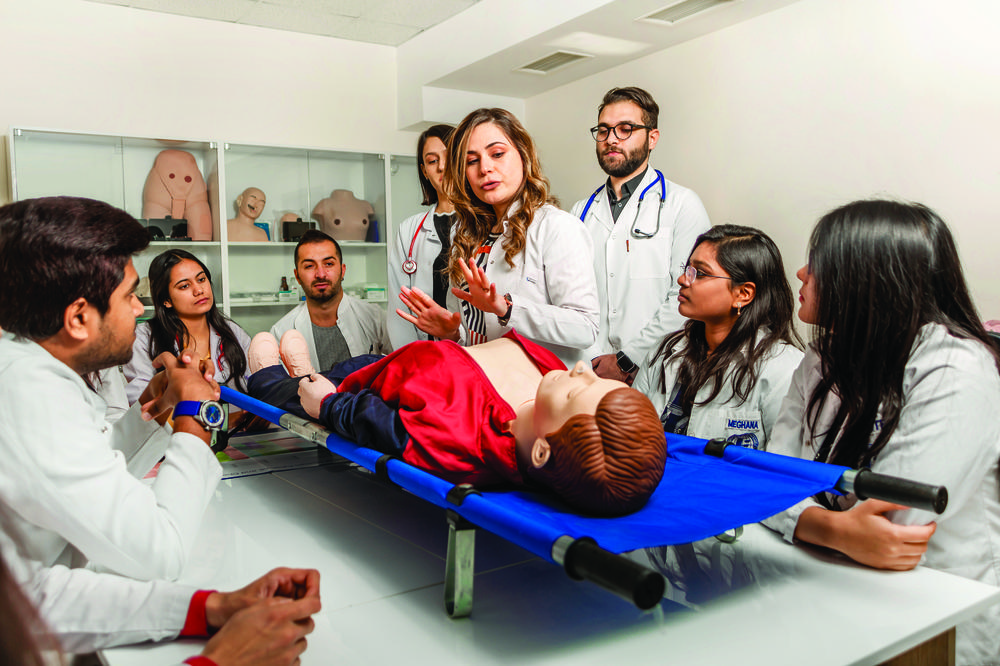

The course lasts for 6 years (12 semesters) for a total of 360 ECTS credits. Typically, you will have 5 modules per semester.
By the end of this course, graduates can:
The European University designed their dental course to equip students with both the theoretical knowledge and practical skills needed to succeed in the field of dentistry. The programme is accredited and internationally recognised, which means that you will be able to become a successful dentist around the globe after you graduate.
Similar to the university’s medicine course, the dental programme provides a comprehensive theoretical foundation, along with hands-on experience in the dentistry simulation centre. Afterwards, students have the advantage of working with real patients in the university's own private dental clinic, EU Dent and in one of its many partnered clinics.
Similarly to the medicine programme, students are allowed to choose their own elective modules, but can ask about details and guidance before deciding.
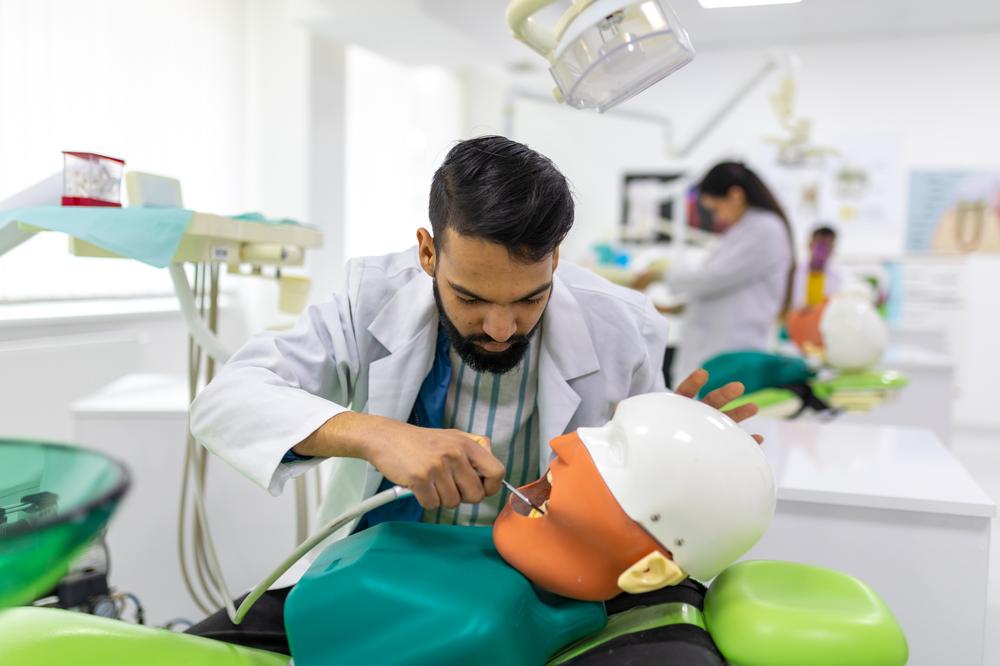

The programme lasts for 5 years (10 semesters) for a total of 300 credits.
By the end of the dental programme graduates will:


Since its establishment, the university has focused on modernising its campus by providing the latest technologies and high-tech infrastructure, especially for the Faculty of Medicine.
One of the standout features of the university is its advanced simulation centres and laboratories for various disciplines like histology, pathology, physiology, and biochemistry. These facilities utilise modern medical technologies and mannequins to create a clinical environment where students can learn and assess their clinical and practical skills. This hands-on approach to learning is crucial for students to gain confidence and experience in medical procedures.
The Georgia European University is home to the latest model of the Anatomage Table, a cutting-edge 3D anatomical dissection simulator. This advanced technology provides students with lifelike simulations of human anatomy, allowing for an in-depth understanding of complex anatomical structures in a way that traditional dissection cannot offer. The Anatomage Table is renowned for its precision and realism, making it an invaluable tool for students studying to become a doctor or dentist.
At Medlink Students, we go above and beyond to make sure that every student feels valued and has someone to talk to if they need any form of assistance. We can provide support in any way necessary to facilitate your growth and to make sure that you have a fulfilling student experience.
Additionally, the European University in Tbilisi Georgia also provides comprehensive support services to its students. Once accepted, each student gets their own dedicated personal learning manager, who acts as a central point of contact for course updates, inquiries, exam formats, and general student well-being, similar to an academic tutor at a UK university.


The university is known for promptly addressing student concerns and finding solutions to any problems that they may have. The university also provides access to a professional psychologist for consultations, as well as resources and support systems for students with dyslexia.
The university also has a dedicated Student and Alumni Service Center, which provides career services. The centre aims to create an environment that is dedicated to student success and self-realisation. The centre actively collaborates with both the private and public sectors, ensuring students and alumni become desirable candidates for their partner organisations.
European University in Georgia receives regular training and consultations from top guest professors from the UK (who are also involved in the framework of education standards set by GMC). They help implement and improve the education and curriculum consistently and constantly every few weeks to be similar and in line with UK medical University training and to guarantee student career success.
Services at the Alumni Service Center include:
Medlink Students also provides comprehensive postgraduate support to ensure that every student reaches their full potential and fulfils their dream of becoming a successful doctor or dentist.


The European University of Tbilisi is highly committed to advancing scientific research and giving students the opportunity to engage in research from early on in their careers. The university hosts several research institutes, including the Medical Research Institute, which publishes international peer-reviewed journals and engages in wide-ranging research projects aimed at addressing modern issues.
The university conducts result-oriented and interdisciplinary research projects, which offer collaboration between different international universities and research centres. The goal is to encourage young scientists to use their academic knowledge to contribute to the advancement of their respective fields personally.
The European University supports its research activities by offering internal grants with transparent and fair funding procedures. Affiliate professors at the university are also provided with funding for research and scientific activities, further showcasing the university's commitment to research excellence and innovation.
The European University in Georgia is committed to sustainable growth, founded on European values, and its mission is to:
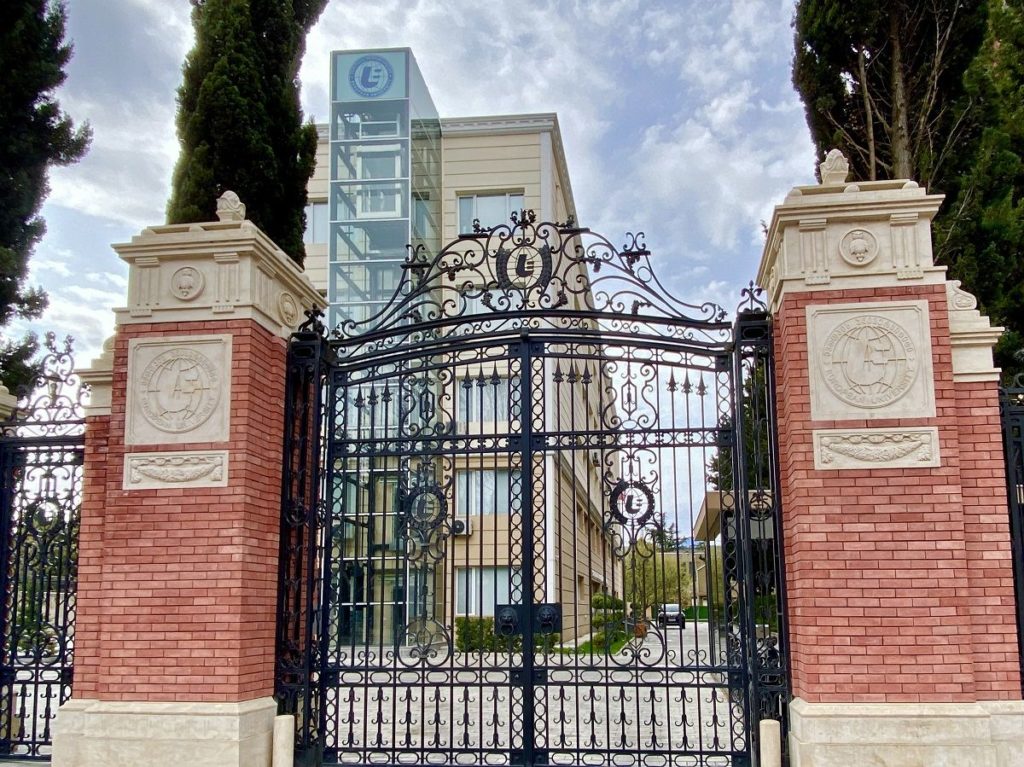

Tbilisi’s European University’s students are well-prepared, which allows them to participate in medical championships and competitions throughout the year. Competitive students can travel around the world to acquire new medical skills and compete for prestigious rewards.
The European University team won 3rd place among 213 other competitors in the 2nd International Diagnostic Championship. They were awarded gift cards and an inSimu Premium subscription, a simulator app for medical situations.
The medical school also encourages the love of sports and has university volleyball, basketball, dance, and futsal teams. For the student’s musical needs, the university has a choir and dance teams, as well as a multicultural day, where internationals can share the dances and traditions of their culture.
Additionally, during your studies, you will be able to participate in field trips, national and thematic events, and charitable and social responsibility projects. European University in Tbilisi provides the most advanced education technologies and encourages everyone to do their best. As additional motivation, 5 of the brightest students are selected to participate in an exchange programme, with the school fully covering their living expenses.
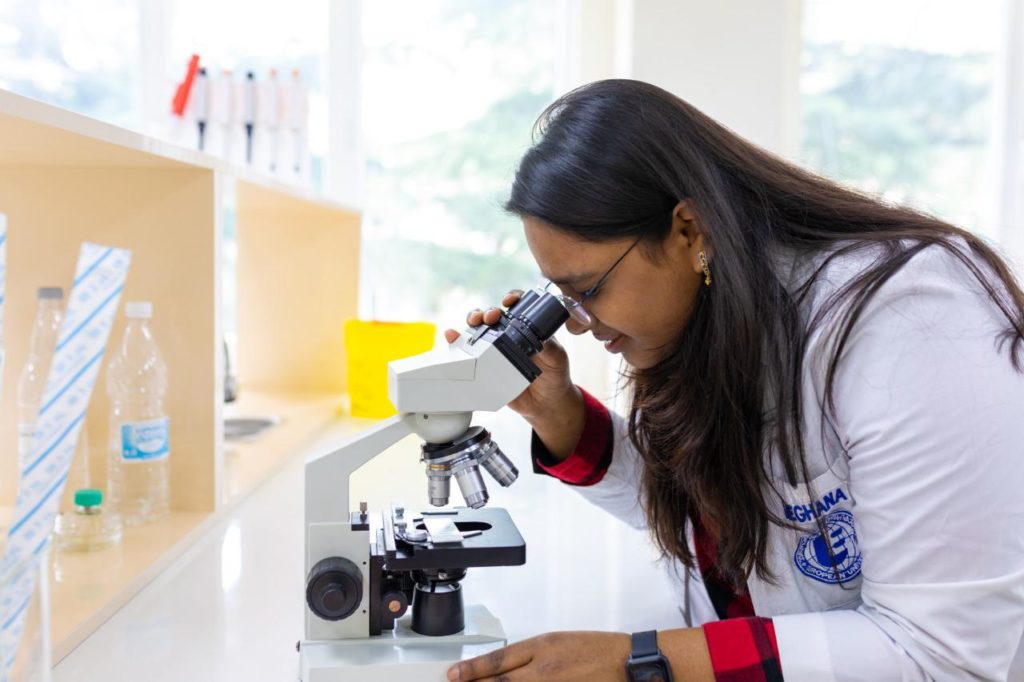

The tuition fee policy at the European University Tbilisi specifies that the US dollar is the officially recognized currency for international students. Students are billed on a yearly basis.
The 6-year MD program costs a year.
When it comes to the dentistry course, it is less demanding in terms of time and fees. It spans for 5 years and is priced at annually for the first three years, with a slight uptick for the last two years. In the last two years, clinical rotations are introduced, allowing students to learn the ropes by hooking theory to practice, bracing them to hit the ground and start practicing right away after graduation.
The MD and DMD programmes aim to prepare you to meet modern standards. To rely on the principles of evidence-based medicine, use qualitative research ethical and communication skills, establish themselves, and develop professionally in a constantly changing environment.
There are no entrance exams for the European University in Tbilisi Georgia, however, these are the admission requirements:
European University Georgia offers 4 intakes throughout the year.
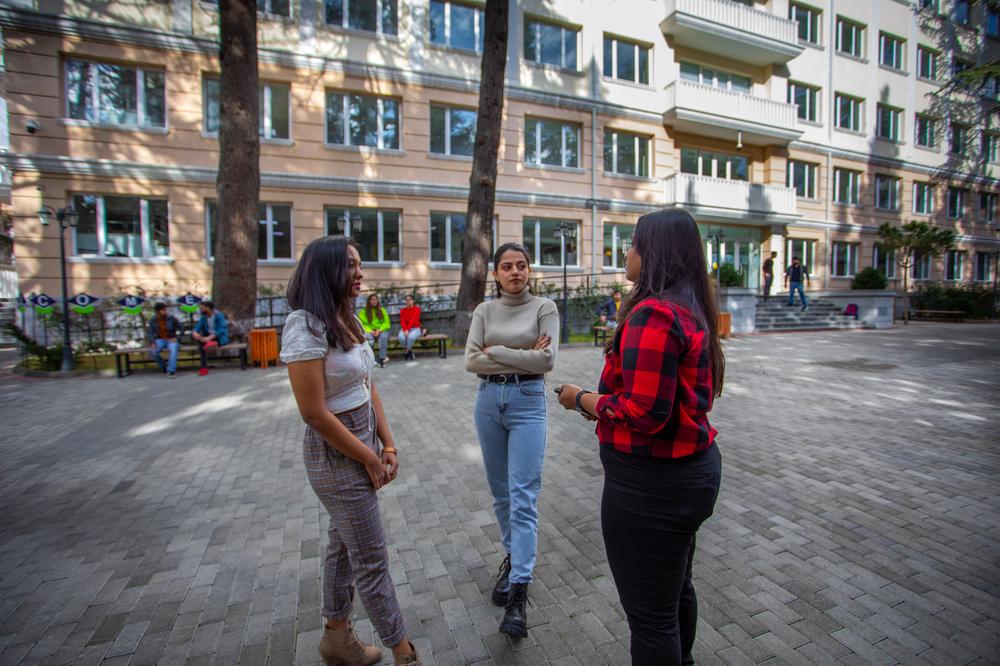

However, the deadlines are constantly fluctuating, and we advise you to apply as early as possible. It is best to get in contact with one of our academic advisors to check if you still have time to apply for the intake you're interested in. Medlink Students can help students gain entry to European University of Tbilisi.
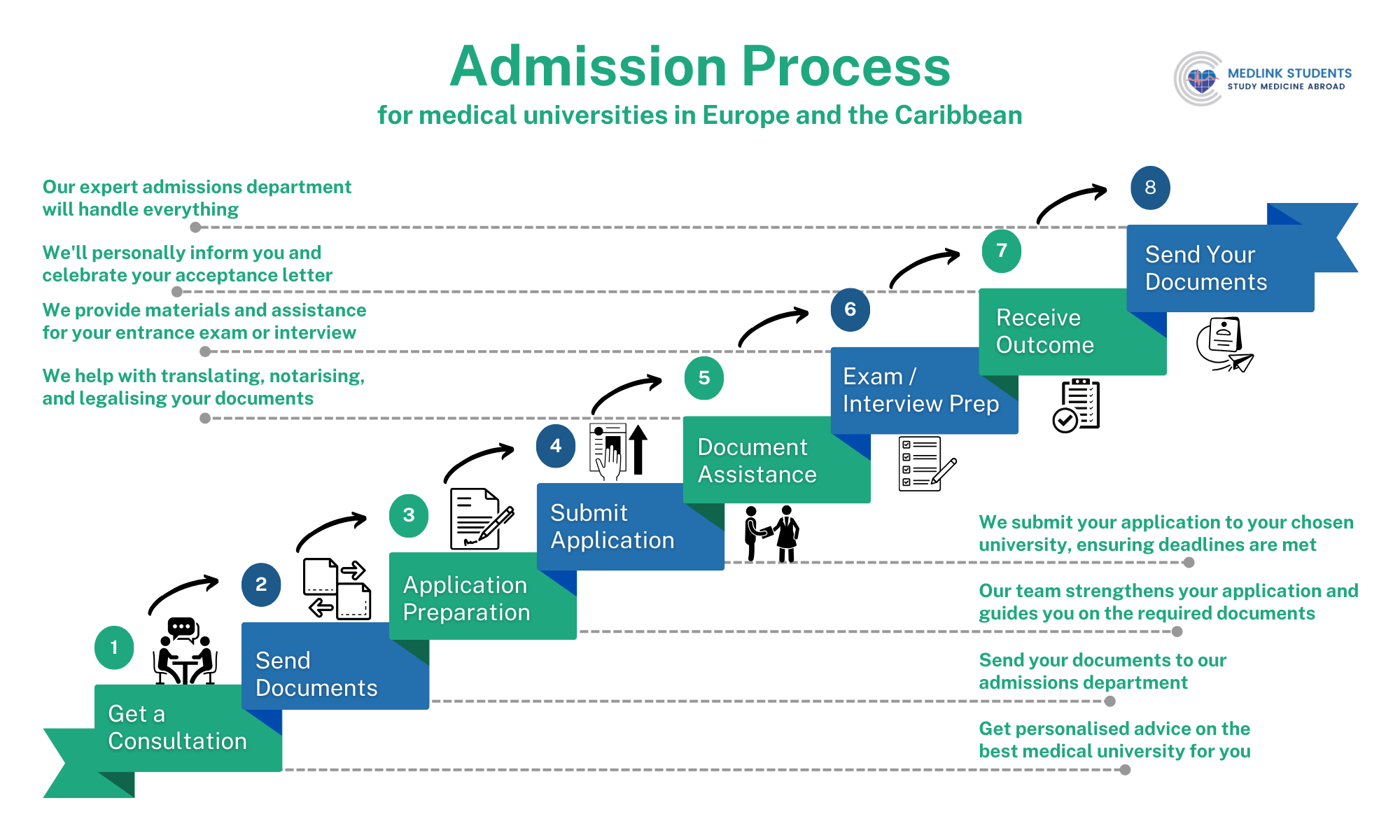

Navigating the complicated regulations set by medical universities for international students can be an overwhelming task. For instance, the European University in Tbilisi follows a detailed set of rules for submissions, including document translations, legalisation procedures, and notarisation specifics, which need to be strictly followed or you will face failure when applying. Medlink Students streamlines this complex process by taking care of your application in its entirety. Our strength is in dealing with these intricacies, ensuring a smooth pathway to gaining admission at this esteemed medical university. We sustain strong relations with the European University and have in-depth knowledge of their application process and their criteria for an ideal candidate. With Medlink Students by your side, you can sidestep the confusing and draining part of applying to a foreign medical school and concentrate on what's most important - preparing for exams and advancing your medical career.
The comprehensive service maximises the chances of aspiring doctors getting admitted to medical school. The service includes:
Medlink Students is the exclusive UK representative for European University in Tbilisi, Georgia. Please beware of any agents/companies giving you false promises. Medlink Students is the only student support agency that can facilitate official admission to the university.
The Faculty of Medicine at European University Tbilisi Georgia is recognised both locally and internationally:
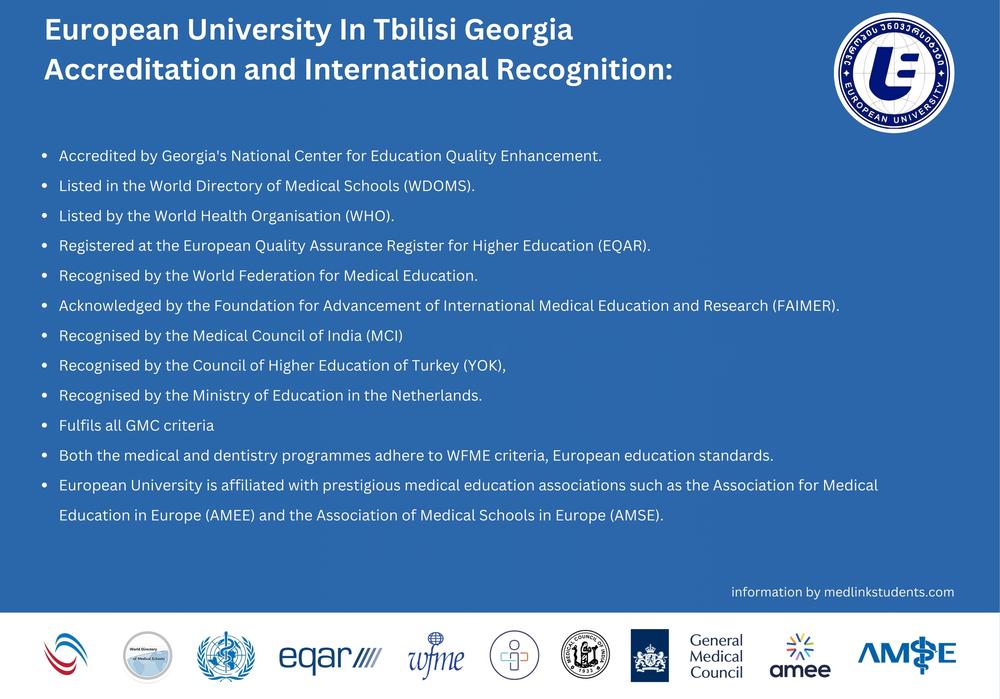

Graduating from this medical school means that you will get a globally recognised diploma and the right to continue your studies or become a successful doctor or dentist in many countries across the world, including in Europe Union, the UK, Canada, Australia, the United States, across Asia, and more.
Graduating from the European University in Georgia allows students to pursue USMLE exams in the United States. The programme also meets the requirements of the GMC in the UK, allowing graduates to pursue PLAB exams for UK practice.
Like the university, the dormitory building is modernly built with a housing capacity of 300 students. It includes more than 15,000 square feet of rooms, facilities, and spaces for leisure.
The dorm is equipped with double rooms furnished with beds, desks, chairs, air conditioning, and central heating. Every room has its own private bathroom. Upon arriving, you will be greeted by dorm representatives, who will help you settle in.
Despite the high-standards of the dormitory building, the monthly dorm rent is affordable - around for a shared room.
Georgia's living costs are very affordable compared to those of Western European countries. A single-bedroom apartment costs between and per month, depending on the location.The best part about studying in Georgia is that you can afford a high quality of life for a modest price. On average, you can expect your monthly living costs to be about per month in Tbilisi, excluding rent.


Tbilisi is an old and intricate city to explore. It was created 1,300 years ago to serve as the new capital of the Iberian king, who needed a town that was easy to defend. Tbilisi’s location in the Caucasus mountains along the Mtkvari River was a purely defensive choice, but the consequences 13 centuries later are genuinely spectacular.
The capital stretches on both sides of the Mtkvari, which cools the air in the hot Georgian summers. Meanwhile, the roads wind around the hills of the Lower Caucasus, and each climb upwards rewards wanderers with the city's glorious sights.
Tbilisi is rich in both beautiful natural landscapes and interesting man-made things to explore and see. The Old Town has architectural marvels like Orthodox cathedrals, public libraries, theatres, and the breathtaking Parliament. Bridges are another sight in Georgia, and young students flock to put love lock charms on them.
Local universities have about 35,000 students, and about 5,000 are international students. Each school has its international community, but there are city-wide clubs and groups with no affiliation limits for participants.
Naturally, the local nightlife is booming with so many young people. International DJs are a common sight in the local clubs, and fans of subtler delights can always find comfort in the local cuisine and the millennia-old wine tradition.
In their free time, students can enjoy a variety of leisure activities, including go-karting, mini golf, kayaking, escape rooms, and much more. During the cold parts of the year, you can go to the local ski resorts and enjoy some winter sports.The best part is that you don’t need to be worried about language barriers, since the majority of the local populace speaks English. Even in situations where someone is having trouble with communicating, there will always be someone to help and translate. This is especially useful when you start your clinical rotations in year 4, as the doctors you’ll be working with will be more than happy to translate for you if needed.
Georgia welcomes students from all corners of the world with open arms and is accepting of all forms of culture and faith. This is especially true for the European University in Tbilisi, which caters to students from diverse ethnicities, cultures and beliefs
As a testament to Georgia’s acceptance of all faiths, you can find mosques, churches, and synagogues throughout Tbilisi. Additionally, the city offers a wide array of culinary options, including vegan, kosher, and halal restaurants.
Throughout the country, the city, and the university, you can rest assured that you will be welcomed by an atmosphere of celebration and acceptance that values the richness of a multicultural environment.
You can now view European University in Tbilisi in and around. Simply click the link below and follow the instructions there:
The academic year begins on the 23rd of October. The first semester ends in early February. Then you will have a 2-week examination session.
The second semester starts in early April and ends at the end of July. Immediately after, the exam period follows and again lasts 2 weeks and ends in mid-June.
| Start of First Semester | End of First Semester | Start of Second Semester | End of Second Semester |
| October 23, 2023 | February 17, 2024 | April 3, 2024 | July 22, 2024 |
For December intake:
| Start of First Semester | End of First Semester | Start of Second Semester | End of Second Semester |
| December 11, 2023 | April 9, 2024 | May 16, 2024 | September 3, 2024 |










I'm a transfer student. So in the UK I actually had a bachelor's degree of biomedical science, so I was able to transfer directly into the fourth semester of dentistry here at European University of Tbilisi... The course is going really well. I really enjoy being here at uni European University. There's a very nice community of abroad students. It's a really nice tourist destination as well. There are a lot of people that come to Tbilisi and Batumi and I do really enjoy the university here and I think the course is going really well... Also, I could literally walk on the street at eleven or twelve at night and it's completely safe, especially here in the capital city in Tbilisi, there's no issue of safety. We haven't encountered any racism here. It's actually a really nice, friendly environment... Medalink actually put me in touch with a few of the students, a few females and males from semesters above so I was able to ask all my questions in advance. You have a lot of support from other students and your study managers, because here at European University you get allocated a study manager as well, and then you can be in contact with the dean as well of whether you decide to do medicine or dentistry, there's a lot of help available. Medlink are always an email away as well, and they tend to reply really quickly and help you sort out any issues. So it's not as difficult as I thought it would be... The course is completely taught in English, so it was really easy to understand and everything is broken down for you. You're in touch with the teachers all the time. You have lectures, you have practicals, they even help you do recovery lessons if there's anything that you miss. So there's lots of exemptions as well... This university is really helpful when it comes to a study program and they help you during the registration process when you decide what modules you want to study and what you want to do that semester. So it's very helpful...
I was worried about the language barrier, actually, of the doctors and of the citizens. I was worried that It was going to be a huge problem. But after eight months here in Tbilisi, I think it's really easy. I don't think anyone should be worried about the language barrier. People in Georgia and Tbilisi are friendly, as I said, and most of them just speak English.
I came in the March intake earlier this year and everyone's been great so far. It's honestly, not as big of a jump as you would think it is. I came from the UK straight out of A levels, I waited a couple of months and then came into Georgia and it was the best thing I ever did. There are so many students here from different areas, from the UK and from other countries. You make friends immediately. The uni and the lecturers have been great. They all know English and we learn Georgian as well, so language isn't a problem. The European University in Tbilisi offers a lot of exchange programs that I think we're about to go on in semester two, but there's also a lot of medical clubs, sports societies, literally just everything. They also do a lot of debates that a lot of students have participated in. I know some of my friends are really into running and they have a running society as well. ...So I've personally got my own apartment, but with my friends it's literally half-and-half, half of them are in dorms and half of them are in their own apartment. It is on your preference. ...My friends have the best time in dorms. It's just like a UK dorm standard. In dorms everyone is in the same boat as you and everyone is so nice and they'll 100% look out for you. If you have any questions, anything like that, dorms is the place because other students will help you out.
The European University in Georgia is accredited by the Foundation for Advancement of International Medical Education and Research (FAIMER). In addition, the university is accredited by the Authorization Council for Higher Education Institutions in Georgia.
Currently, it does not offer a medicine graduate entry route for UK students. A dentistry graduate entry pathway is available. Contact our team for further details.
Yes, the university offers a dentistry programme.
Yes. For more information, don't hesitate to get in touch with one of our expert advisors.
The university is located in Tbilisi, Georgia. The city straddles the Mtkvari River and lies in the South Caucasus mountain range. The university’s address is 76 D. Guramishvili Avenue, 0141, Tbilisi, Georgia.
The tuition fees for medicine are around per year (6 years). Dentistry costs approximately per year (5 years).
Yes. You can study general medicine and dentistry in English.
Yes, the university has graduates registered with the UK.
No, there is no entry exam.
Students need a secondary school diploma and an English-proficiency certificate for non-native speakers.
The autumn semester begins on the 23rd of October.
The university has 4 intakes with different deadlines:
European University in Georgia offers expert instructors, modern facilities, and international recognition of the degree. The school owns the Jo Ann Teaching Hospital–Georgia’s leading provider of cardiology and cardiac surgery where students can learn from the best. Last but not least, aspiring doctors enjoy exciting extracurricular and leisure activities, such as field trips, parties, and scientific competitions.
Students at European University engage in practical learning with hands-on experience. The university emphasizes real-world applications of theoretical knowledge, especially at Jo Ann University Hospital, a leader in cardiology and cardiac surgery.
The European University curriculum is designed to meet the General Medical Council (GMC) standards, which make graduates eligible to practice as doctors in the UK.